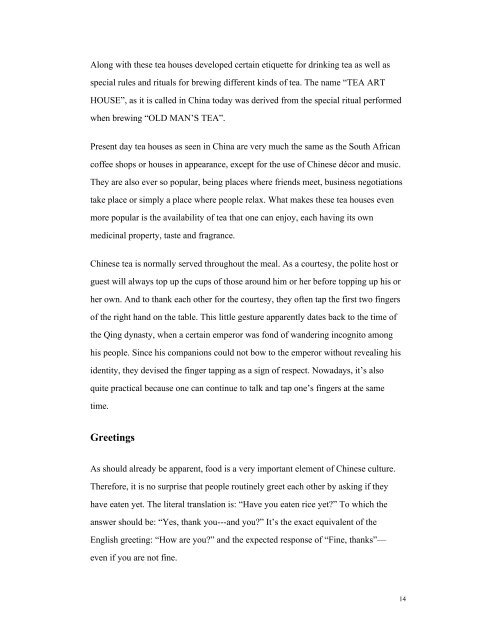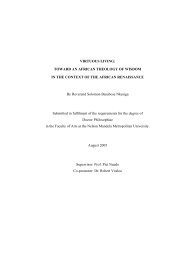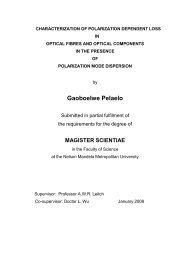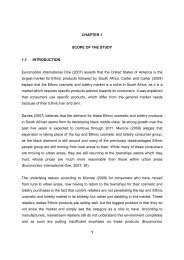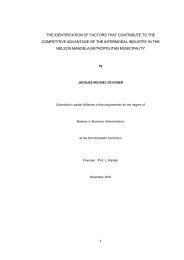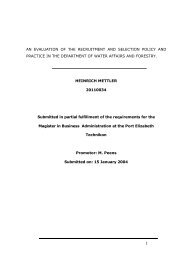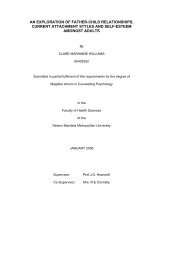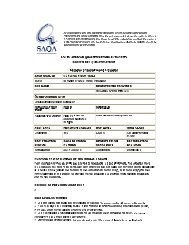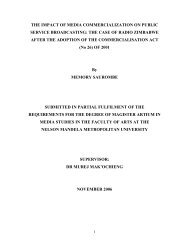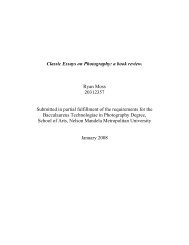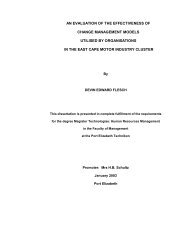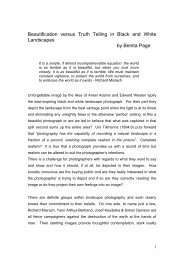CULTURE SHOCK - Nelson Mandela Metropolitan University
CULTURE SHOCK - Nelson Mandela Metropolitan University
CULTURE SHOCK - Nelson Mandela Metropolitan University
Create successful ePaper yourself
Turn your PDF publications into a flip-book with our unique Google optimized e-Paper software.
Along with these tea houses developed certain etiquette for drinking tea as well asspecial rules and rituals for brewing different kinds of tea. The name “TEA ARTHOUSE”, as it is called in China today was derived from the special ritual performedwhen brewing “OLD MAN’S TEA”.Present day tea houses as seen in China are very much the same as the South Africancoffee shops or houses in appearance, except for the use of Chinese décor and music.They are also ever so popular, being places where friends meet, business negotiationstake place or simply a place where people relax. What makes these tea houses evenmore popular is the availability of tea that one can enjoy, each having its ownmedicinal property, taste and fragrance.Chinese tea is normally served throughout the meal. As a courtesy, the polite host orguest will always top up the cups of those around him or her before topping up his orher own. And to thank each other for the courtesy, they often tap the first two fingersof the right hand on the table. This little gesture apparently dates back to the time ofthe Qing dynasty, when a certain emperor was fond of wandering incognito amonghis people. Since his companions could not bow to the emperor without revealing hisidentity, they devised the finger tapping as a sign of respect. Nowadays, it’s alsoquite practical because one can continue to talk and tap one’s fingers at the sametime.GreetingsAs should already be apparent, food is a very important element of Chinese culture.Therefore, it is no surprise that people routinely greet each other by asking if theyhave eaten yet. The literal translation is: “Have you eaten rice yet?” To which theanswer should be: “Yes, thank you---and you?” It’s the exact equivalent of theEnglish greeting: “How are you?” and the expected response of “Fine, thanks”—even if you are not fine.14


